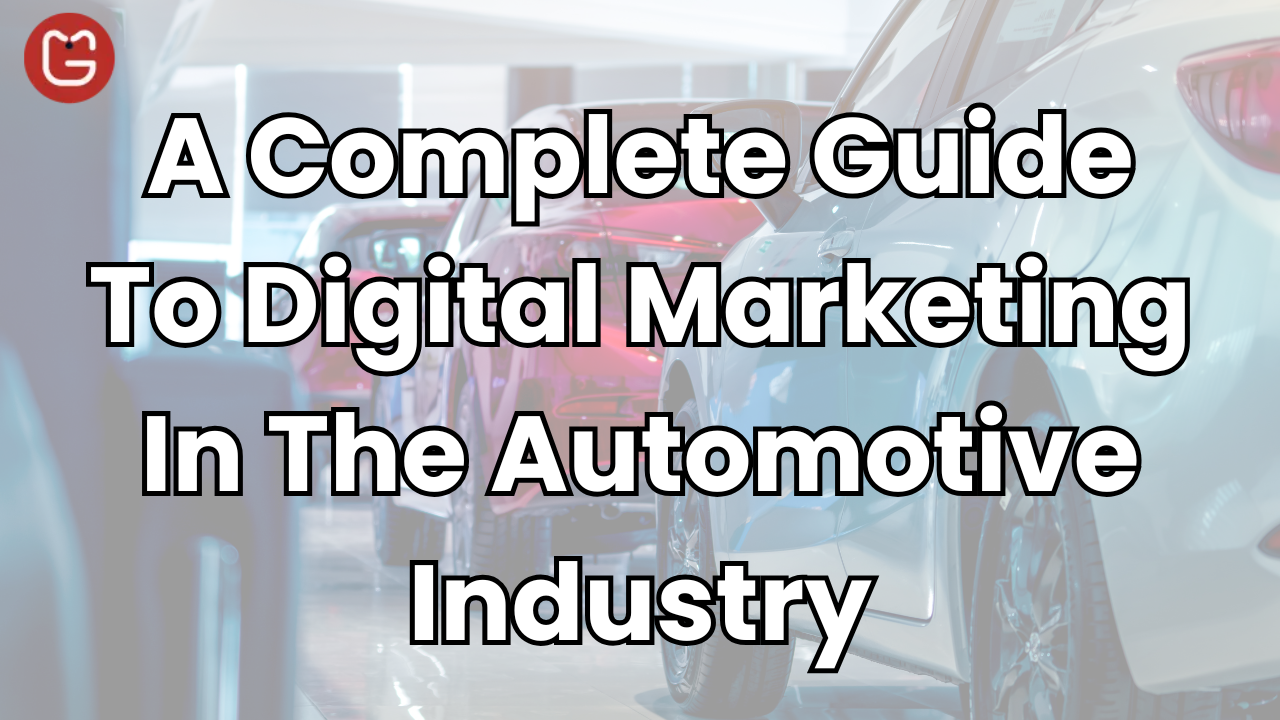


The automotive industry has undergone a major transformation. Customers no longer rely solely on visiting dealerships—they research, compare and even purchase vehicles online. In this competitive landscape, dealerships, auto brands and service providers need effective digital marketing strategies to capture attention, generate leads and drive sales. This guide provides a comprehensive overview of automotive digital marketing, covering strategies for attracting new customers, improving online visibility and building long-term loyalty.
Changing Customer Behavior: Buyers research vehicles online before visiting a dealership. They compare models, prices and reviews, making it crucial for brands to have a strong online presence.
High Competition: The automotive industry is highly competitive, with traditional dealerships, independent sellers and online platforms all vying for attention. Digital marketing helps brands stand out with targeted campaigns.
Lead Generation and Sales: Digital campaigns generate qualified leads by targeting users actively searching for cars, services or auto accessories. A well-optimized website and online campaigns can convert interest into showroom visits or online purchases.
Brand Credibility: Sharing customer testimonials, virtual tours, service tips and educational content builds trust and positions your brand as an authority.
Successful automotive digital marketing starts with understanding your target audience. This may include:
New Car Buyers: Researching vehicles online before visiting a dealership.
Used Car Buyers: Looking for reliable options with verified reviews and pricing.
Auto Service Customers: Searching for repairs, maintenance or aftermarket parts.
Fleet Buyers: Businesses purchasing multiple vehicles for operations.
Segmenting the audience allows campaigns to be personalized, increasing engagement and conversions.
Not all channels deliver the same results. Focus on:
SEO & Local Search: Optimize your website for queries like “car dealership near me” or “auto repair service [city].”
Social Media Platforms: Facebook, Instagram, YouTube and TikTok help showcase vehicles, share promotions and engage users visually.
Google Ads & PPC Campaigns: Target high-intent searches such as “buy sedan online” or “affordable car service.”
Email Marketing: Send personalized offers, service reminders and newsletters to retain customers.
Video Marketing: Car reviews, tutorials and test-drive experiences attract engaged buyers.
Selecting the right channels ensures that your digital marketing efforts generate leads and measurable results.
Content is central to any automotive digital marketing strategy. Effective content types include:
Vehicle Showcases: Highlight car features, specifications and benefits with professional photos and videos.
Virtual Tours: 360-degree tours of vehicles or service centers improve engagement.
Customer Testimonials: Build credibility and trust.
Maintenance & Service Tips: Educational content positions your brand as a trusted advisor.
Promotions & Offers: Seasonal discounts, finance options or free servicing campaigns drive action.
Behind-the-Scenes Content: Show manufacturing processes, service workshops or dealership events.
Many of these strategies align closely with digital marketing for delivery services, especially when targeting customers who value efficiency, convenience, and trust—core pillars of both industries.
Paid campaigns increase visibility and drive conversions quickly. Key strategies include:
Search Engine Ads: Target buyers searching for specific models, dealerships or repair services.
Display & Retargeting Ads: Engage users who previously visited your website.
Social Media Ads: Highlight offers, new arrivals or service packages to targeted audiences.
Video Ads: Short-form videos showcasing features, promotions or tutorials.
A focused digital marketing strategy ensures ad budgets are used efficiently to reach the most qualified audience.
Technology plays a key role in modern automotive marketing:
CRM Tools: Track leads, follow-ups and customer interactions.
AI & Chatbots: Provide instant responses to inquiries about vehicles, services or financing.
Analytics Platforms: Measure campaign performance, website traffic and lead quality.
Mobile Optimization: Ensure websites and apps are fast, responsive and user-friendly.
These tools enhance customer experience, improve lead management and maximize ROI.
Customer engagement goes beyond advertising. Strategies include:
Interactive Experiences: Virtual test drives, car configurators or comparison tools.
Feedback & Reviews: Encourage reviews to improve credibility.
Community Involvement: Host events, webinars or car enthusiast meetups.
Social Media Interaction: Respond promptly to comments, questions and messages.
High engagement strengthens brand loyalty and encourages repeat purchases or services.
Tracking results is critical. Focus on:
Website Metrics: Monitor traffic, bounce rates and inquiry submissions.
Lead Quality: Track leads and measure conversion rates.
Social Media Metrics: Analyze engagement, reach and ad performance.
ROI from Paid Ads: Measure the efficiency of campaigns in generating leads and sales.
Regular monitoring allows continuous improvement and ensures campaigns deliver measurable results.
The automotive industry is highly competitive and brands that fail to adopt effective digital marketing strategies risk being left behind. A combination of targeted social media campaigns, paid advertising, educational content and data-driven decision-making can significantly improve visibility, generate qualified leads and drive sales. For automotive businesses seeking expert guidance in developing a full-scale automotive digital marketing strategy, GBIM Technologies provides tailored solutions to maximize online presence, lead generation and customer engagement.
Facebook, Instagram, TikTok and YouTube are effective for showcasing vehicles, customer stories and promotional campaigns.
3–5 posts per week, combining vehicle showcases, service tips and promotional content, keeps engagement high.
Yes. Targeted campaigns, local SEO and retargeting ads can convert leads into test drives and purchases.
Vehicle showcases, tutorials, customer testimonials, service tips and promotional offers perform best.
It increases visibility, attracts high-intent buyers and retargets potential customers who previously visited your site.
Absolutely. Many users research and even purchase vehicles via smartphones, making mobile optimization crucial.
CRMs, AI chatbots, analytics and mobile-optimized tools streamline lead management and enhance customer experience.
Interactive tools, virtual tours, social media interaction and customer reviews help build loyalty and trust.
Yes. Agencies provide expert strategy, campaign management and analytics for maximum results.
Analytics help track leads, conversion rates, ad performance and engagement, allowing continuous optimization.
309, Rupa Solitaire,
Sector-1, Millennium Business Park,
Mahape, Navi Mumbai,
Maharashtra (400 710), INDIA.
Write to us at
hr@gbim.com